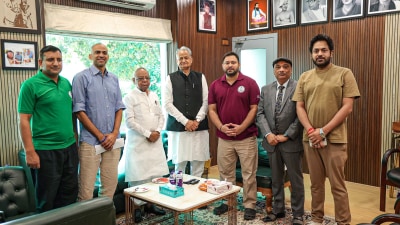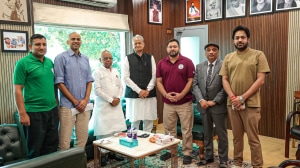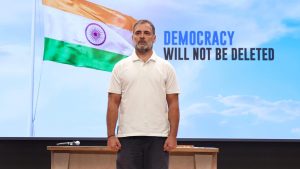‘We’re happy with drought relief work’
Rajasthan is facing one of the worst droughts in its history. Looking at the severity, relief work — which normally starts in February-...

Rajasthan is facing one of the worst droughts in its history. Looking at the severity, relief work — which normally starts in February-March — started in August. It has ensured that: payment to the relief workers is regularly made, within 10 days; and minimum wages of Rs 60 a day are paid to them (Rajasthan is the first state to have revised minimum wage to Rs 60 per day, in Gujarat it is Rs 44 per day)…
Famine entails huge expenditure which is beyond the capacity of any state government alone. Still the government has begun relief work in right earnest. It is unfortunate that our request for central assistance under NCCF, amounting to Rs 7,519 crore, has been pending for nearly two months. Against our requirement of 56 lakh million tonnes of wheat, only 2 lakh million tonnes have been released so far.
Rajasthan is the first state where arrangements for mid-day meals have been made in all the districts. A provision of Rs 120 crore has been made for this purpose. This scheme will benefit approximately 70 lakh children. In addition to this, in Anganwadi centres, 30 lakh children below the age of six years, and pregnant and lactating mothers will benefit…This has been made possible in spite of severe financial constraints and the fact that 40,690 villages in 32 districts of the state are adversely affected.
So far, around eight lakh people have been employed in relief and departmental works, which will increase in due course of time…We are aware that the wheat supplied under the PDS system is not being lifted by people because of poor quality and the fact that better quality wheat is available in the market at comparative prices…We should not be oblivious to the fact that these tribal belts are still insulated in the sense that despite the best efforts of the government in the past 55 years, they do not utilise and avail various benefit schemes to the fullest.
Hence, while we are satisfied with the relief works undertaken by the state government, there is still a possibility of human error, especially in the far-flung and tribal areas where superstitions prevail to the extent that even now tribal children are not sent to Anganwadi schools, where they could get nutritious food along with education.






- 01
- 02
- 03
- 04
- 05

























